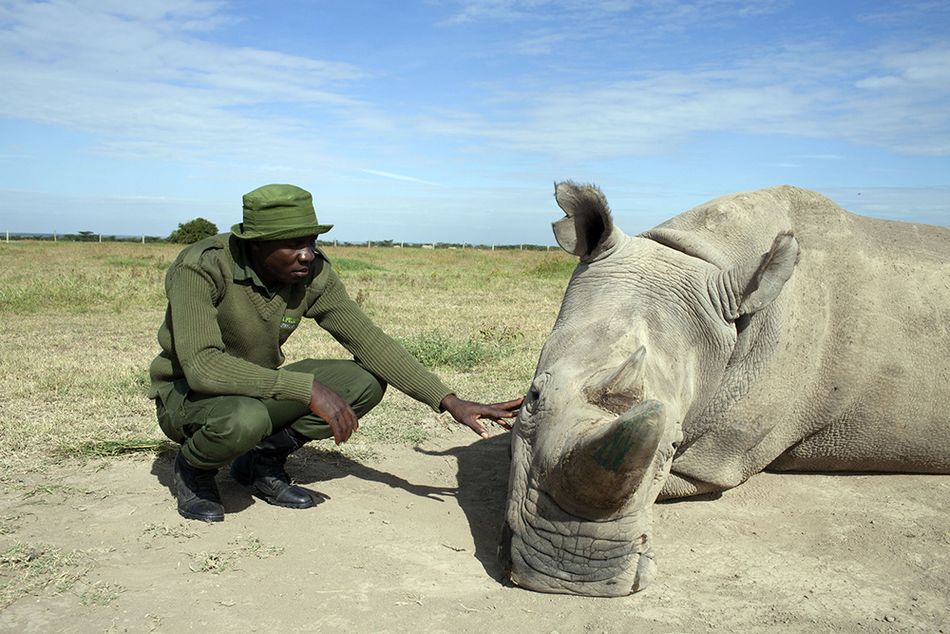At 94 years old and with over 60 years of wildlife documentary-making under his belt, Sir David Attenborough is well-placed to share his thoughts about the future of our planet.
And on Sunday, in the new BBC documentary Extinction: The Facts, the legendary presenter had a warning for all humans — that means you — about the creatures we share the Earth with.
“Over the course of my life, I’ve encountered some of the world’s most remarkable species of animals,” Attenborough says at the start of the hour-long film. “Only now do I realise just how lucky I’ve been. Many of these wonders seem set to disappear forever. We’re facing a crisis, and one that has consequences for us all. It threatens our ability to feed ourselves, to control our climate — it even puts us at greater risk of pandemic diseases such as COVID-19.”
“Many of these wonders seem set to disappear forever.”
With the help of a number of academics and experts, Attenborough goes on to explain that extinction is now happening much faster than it used to — with 570 plant species and 700 animal species disappearing since the year 1500. “Studies suggest that extinction is now happening a hundred times faster than the natural evolutionary rate,” Attenborough says. “And it’s accelerating.”
A follow-up to Attenborough’s 2019 explainer documentary, Climate Change: The Facts, Extinction: The Facts delves into some of the main causes of extinction and disastrous biodiversity loss today, including habitat destruction (either caused by land use or human-induced climate change or both), unsustainable agricultural and fishing practices, and poaching. The documentary examines a number of species across the world that are at risk, from the two remaining northern white rhinos in Kenya’s Ol Pejeta Conservancy to the 25 percent of assessed plant species currently at risk of disappearing forever.

One of the two remaining northern white rhinos.
Image: BBC / Charlotte Lathane
Although the documentary is a heavy and often bleak watch, it does end with a message of hope — albeit one with clear responsibility bestowed upon humans.
“One thing we do know, is that if nature is given the chance, it can bounce back,” concludes Attenborough, giving one example using archive footage of one of his old documentaries. “40 years ago, I had one of the most memorable experiences of my life. I was in the Virunga Mountains, which straddle the border of Uganda, the Democratic Republic of Congo, and Rwanda. And there I met some of the few remaining mountain gorillas, including a mischievous youngster called Poppy.
“As I was preparing to talk to camera, Poppy was at my feet, trying to take off my shoes. It was an experience that has stayed with me, but it was tinged with sadness, as I thought that I may be seeing some of the last of their kind.”
In the 1970s, there were around 250 mountain gorillas in the area Attenborough visited. But in the years since, thanks to a joint effort from governments, rangers, and conservationists, the numbers have grown in the Viruga Mountains. In 2005, a scheme was set up to share tourism revenue with local communities, reducing the need to use the gorilla’s habitat for agricultural purposes — and now, in 2020, gorilla numbers are up over 1000.
Poppy’s daughter and granddaughter are among them.
“To see Poppy’s daughter and granddaughter thriving is thrilling,” finishes Attenborough. “It just shows what we can achieve when we put our minds to it. I do truly believe that together we can create a better future. I might not be here to see it, but if we make the right decisions at this critical moment, we can safeguard our planet’s ecosystems, its extraordinary biodiversity, and all its inhabitants.
“What happens next is up to every one of us.”
Extinction: The Facts is available on BBC iPlayer in the UK.
